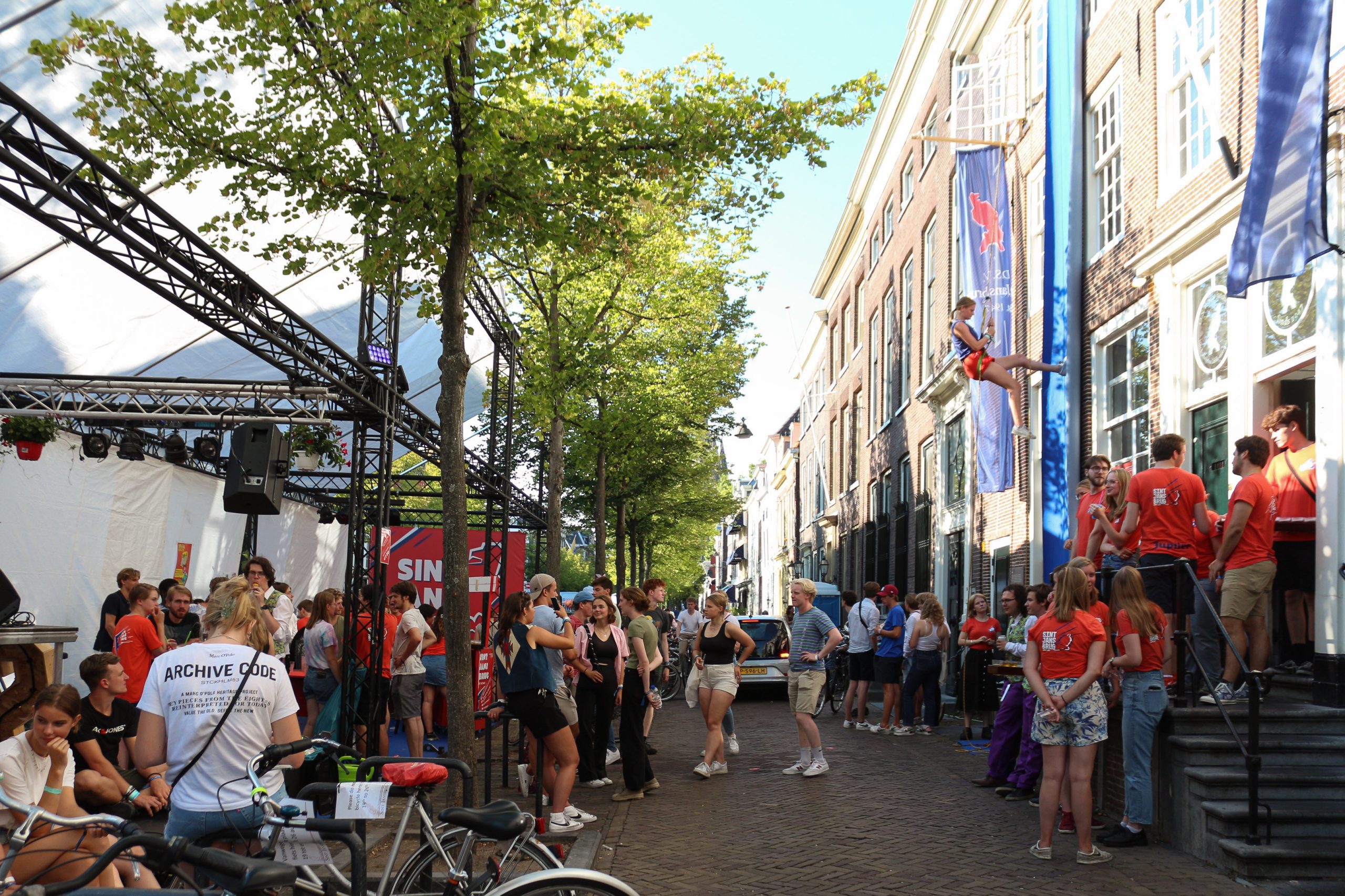Delft’s student associations want to have a say in TU Delft’s plans to grow. “How can we ensure that there are enough amenities for both current and new students?”
There is little room for Delft student associations to grow. Several associations, such as Sint Jansbrug, therefore have a membership stop. (Photo: Justyna Botor)
Vera, the TU Delft Association Council, points out that if TU Delft grows, this will not only affect TU Delft itself, but also the city, the city centre, and the student associations. “Almost all Dutch speaking TU Delft students join a sports, social or study association,” said the umbrella organisation of 18 TU Delft student associations. “The university has a wide choice of clubs and encourages self-development through extracurricular activities. It can be expected that a rapid increase in the number of students will lead to more registrations at student associations.”
According to the Association Council few student associations will benefit from such a strong growth. Several student associations have already had to impose a membership stop. This means that the number of student members is capped every year.
‘A lot of extra houses need to be built’
There is a lot of pressure on the student associations and there is little space to grow. In the city centre in particular – where the large social associations are housed – it is hard to find bigger buildings. “This is because of costs, the impact on the surroundings, and space in the city centre,” says the Association Council. Discussing the position of the student associations is thus highly desirable. “How can we ensure that there are enough amenities for both current and new students? Just think about things like more sports grounds, extending association buildings or finding ways to have the students and residents in Delft live in harmony with each other.”
That relationship too is under pressure and the shortage of housing is making it worse. “A lot more houses need to be built,” says the Association Council, “and not only the studios that are mostly being built now.” Self-contained housing does not only take up more space, believes the Council, but does not meet the needs of students. They would rather share accommodation than live alone. The Council suggests easing the rules around verkamering – converting houses into residences in which rooms can be rented out separately – as a possible option.
Well-being
TU Delft’s growth plans emerged from a Committee of which former Student Council Chair Job Vlak was a member. In its final report, the Committee shares growth scenarios and observations about the current position of TU Delft. It notes that student welfare is currently under much pressure: there is too little space and time for small-scale courses; the student groups are too big; there is too little housing for students; there is a stop to registration at student associations; and, the relationship between the number of students and other residents of Delft is out of kilter.
‘Supplying more engineers must not be at the cost of student welfare’
The Executive Board will soon discuss the growth plans with various internal and external groups, including the Student Council. The Chair of the Student Council, Marten Leenders, said that there are two important points at the heart of discussions with the Executive Board: student welfare and education. “Supplying more engineers in the future must not come at the cost of student welfare,” he says.
The Student Council believes that it is important that education remains ‘personal’. “Supplying more graduates every year that are less well educated should not be the objective of the growth plans.” In the time to come, the Student Council and the Works Council will list the consequences of the proposal.
The Association Council is not involved in the discussions, but says that it would get involved if asked. “If TU Delft goes ahead with the plans, we would like to brainstorm on how we can achieve the growth with the involvement of the student associations.”
Definitive
Last month, TU Delft’s Executive Board announced its plans to grow to 40,000 students. The idea is that not all those students will study or live in Delft, but instead be spread across campuses in Rotterdam and The Hague.
The plan is not yet definitive. The Executive Board started an internal consultation round on 15 September . Among the people involved in the consultation are deans, directors of the support services, departmental chairs, and directors of education. In parallel, the Executive Board will talk to the Supervisory Board, the Works Council, the Student Council and various external entities.
- TU Delft could have opted for other growth scenarios. Read them here.
- Also read this interview with Executive Board Chair Tim van der Hagen about the plans.
- What do TU Delft Municipal Council members think about TU Delft’s intention to grow?
Do you have a question or comment about this article?
m.vanderveldt@tudelft.nl



Comments are closed.